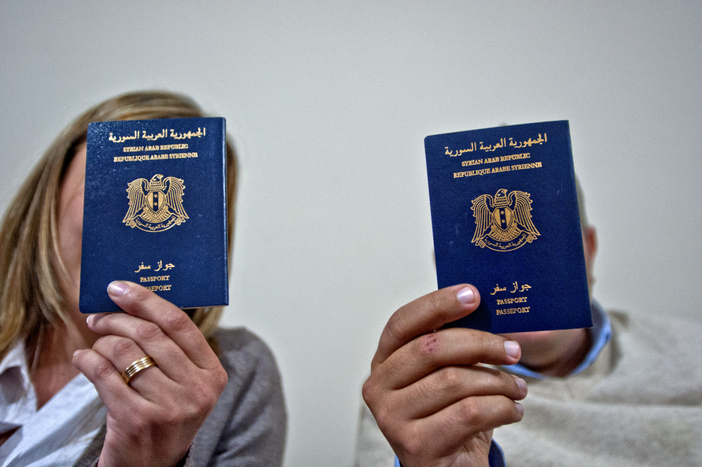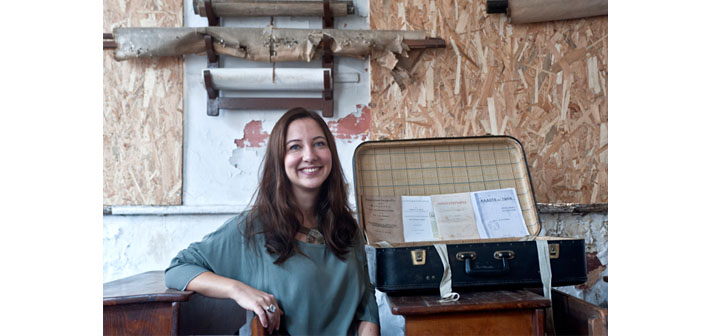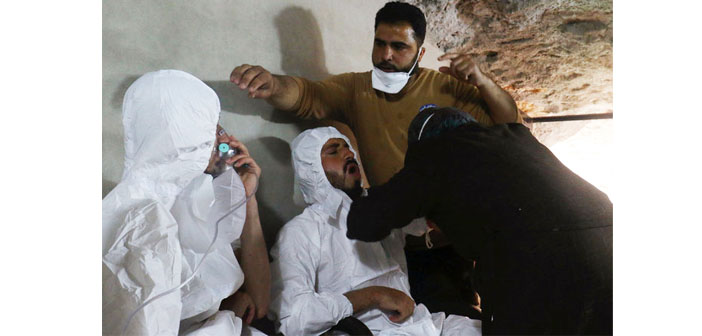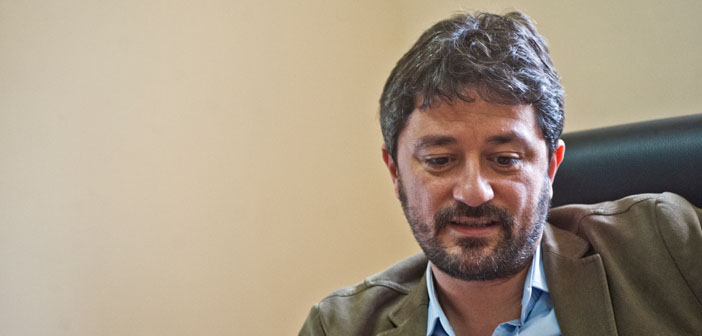There is only one Syrian Armenian in Istanbul that I know. Though I know him for one and a half year, I couldn't have managed to learn about his story. And once I learned about it, I thought that his story should be shared.
You
must have came across with Syrian refugees in Istanbul frequently.
Some of you might have looked down on them and just walked by and
some of you might have understood that they didn't want to come here
but they had to take shelter in Turkey because of the war in their
home. Nevertheless, I think that we can never understand the feelings
and experiences of people who escaped from the war.
There is only one Syrian Armenian in Istanbul that I know. Though I know him for one and a half year, I couldn't have managed to learn about his story. And once I learned about it, I thought that his story should be shared, since his story reveals that our community is no different from the state, assimilation policies have been affecting Syrian Armenians as well and the troubles of Syrians who have been trying to start a new life in Istanbul.
Eminönü has different meanings for everyone: it means history, crowd, noise, color... One day, when I was giving a tour of Eminönü to my friends from Armenia, I took them to the store where I buy Turkish delight. We were speaking Armenian and all of a sudden, one of the workers asked, “Is it Hayeren?” (Hayeren means Armenian.) I got surprised, since I didn't know that there is an Armenian worker in the shop that I go very often. He seemed happy; we weren't able to talk to each other very long, since he doesn't speak Armenian or Turkish and we don't speak Arabic. It's been almost one year and a half since this incidence. We began to talk to each other more and more. One day, he was happily talking about their visit to the church in Kınalıada and another day, he was talking about their Easter celebration and plans to move to Canada or Europe. T. is Armenian on his father's side and Arabic on his mother's side. He thinks that this is the reason why he doesn't speak Armenian. T. introduces me as his relative in his workplace. He tries to explain why he gives me discount by saying that he doesn't have any other relative here.
Last weekend, we headed to Eminönü once again and met with T. He spoke to people from Armenia, as his skills in Armenian allows and he offered delight to everyone. He is always smiling and full of life and I find this interesting. Months ago, I found out that his father died. When we saw each other, I hugged him and said that I am so sorry. He said, “Such is life.” Later, I found out how his father and uncle died: they were caught by ISIS in their farm in Manbij.
My first conversation with his wife S. was on the phone. Then during the holiday, I met the family. We had coffee together. Their daughter was also there; she is about to turn 4. The little one gave me a chocolate bar. She was talking to his mother in Armenian, to his father in Arabic and to waiters in Turkish. It seemed that there is nothing unusual, until I heard the story of T., who is always smiling...
“You will either get better or die”
T. and his family have been in Istanbul for 3 years. He told that they had so many troubles when they first came here: “We had money. We rented a house, paid a deposit and some money to the real estate agency. The landlord dispossessed us because we are Syrian and we couldn't get the deposit back. We rented another house and the same expenses were made. We had nobody, we couldn't speak Turkish. We didn't even know how to pay the bills and we have been cheated many times.” Now that they have a health card, the state pays for the medications of their child. S. said that they were really afraid when their daughter got sick. They didn't know how to get an appointment from the hospital. T. understood what we were talking about and laughed: “You will either get better or die until you get an appointment.”
“I need a job, not money”
S. said that they went to General Vicar of the Patriarch Aram Ateşyan, hoping that they might find a job and baptize her daughter and husband: “His Eminence said that he cannot baptize my husband. He recommended him to go to Armenia and be baptized there. He asked if we had a wedding ceremony in the church. My husband's family is already assimilated and holding a wedding ceremony in a church in Syria wasn't that easy. How could we have a wedding ceremony, if they don't baptize him? My husband knows better than me and we managed to baptize our daughter. When I asked about a job, His Eminence told me that many Armenians in Istanbul need job as well and they have the priority. I was surprised by what he said. Back in Aleppo, we were in a good condition and we never needed to ask help from the church. However, I am sure that the church wouldn't have turned us down, if we were asking for help. Years ago, Armenian families ran away from Iraq to Syria. The church asked each Syrian Armenian family to host a family from Iraq. We hosted many families in our house; they stayed for months, we shared our food and treated them very well. We knew that they were in poor condition and that we have to host them for a while. Now, we are in the same condition. Such is life.”
“They cannot go to an Armenian school”
For the children of Syrian Armenians, going to an Armenian school is almost impossible. S' mother came to Istanbul with them and her sister and brother also came afterwards. Her brother is working in a sandwich shop and her sister doesn't even know if she will be able to go to school: “We want her to receive education in Armenian. We made a lot of efforts, but they didn't accept her. Syrians have to go to public schools, they say. My mother found a job in an Armenian school and then they accepted my sister as a guest student. Since my mother was working there, they didn't ask for fee. However, my mother lost her job 2 months ago. Now, she cannot find a job. Normally, they pay very little since she is Syrian, but there is no job even with a little wage now. That is why she thinks about going to Armenia. However, according to the law, Syrians cannot come back to Turkey once they are out. What if she cannot survive in Armenia? Then I cannot see them again. I thought about going to Armenia and acquire citizenship as well. I thought maybe Armenians in Istanbul would treat us better if we are Armenian citizens, not Syrians. However, the fact that my husband is not baptized causes problems. They wouldn't give him citizenship.”
S. said that she wants her daughter to receive education in Armenian, but they cannot afford it: “I have to pay tuition fee, but we don't have that much money. Because of this, she won't be even a guest student. I want my daughter to receive education in Armenian. We live here and she will learn Turkish of course, but I want Armenian education for her. I am trying to teach her English.”
Saying that she was organizing events in Syria, T. says, “Now I am organizing delights” and laughs. He hopes against all hope and says that he is full of energy no matter what: “I have limitless energy, it is enough for a lifetime. I will do whatever I can in order to prevent my daughter from experiencing difficulties.”
I knew that T. wanted to move to Europe with his family. It didn't happen. During our previous meeting, he whispered, “I guess we will go to Canada.” However, he said that Canada refused them. In spite of everything, maybe he is more hopeful than any of us.





